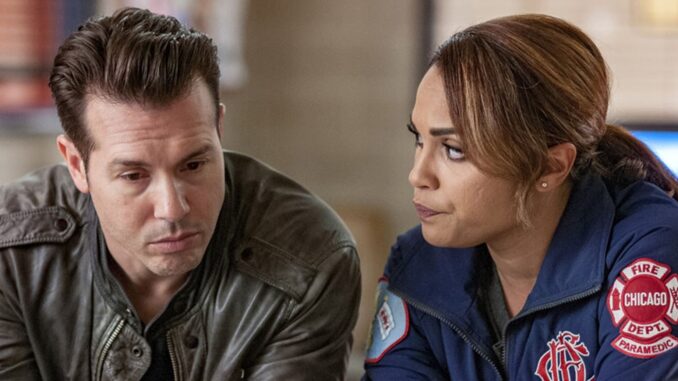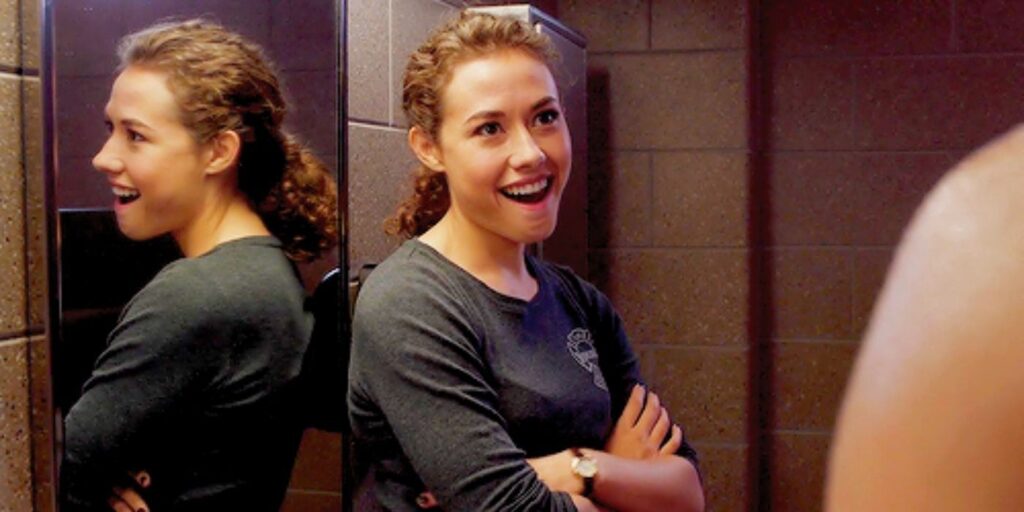
Over its many seasons, Chicago Fire has seen the departure of numerous beloved characters, but not all exits were as satisfying as they could have been. While some characters had fitting and emotional goodbyes, others left the show abruptly or in ways that didn’t do justice to their development. From shocking deaths to storylines left unresolved, here’s a look at seven Chicago Fire characters whose exits could have been handled better.
7. Gabriela Dawson (Monica Raymund)
Gabriela Dawson was a cornerstone of Chicago Fire. Known for her bravery and dedication, she faced personal and professional challenges, including a heartbreaking miscarriage and the struggle to adopt her foster son, Louie. Her relationship with Matthew Casey was equally central to her story, filled with emotional highs and lows.
However, Dawson’s departure in season 7 felt rushed. Her decision to leave Chicago for Puerto Rico to aid disaster relief aligned with her compassionate nature, but the fallout from her sudden exit—such as her crumbling marriage—happened too quickly. After six seasons of rich character development, Dawson deserved a more nuanced and heartfelt farewell that reflected her impact on the series.
6. Leslie Shay (Lauren German)
Leslie Shay’s death in the season 3 premiere was a devastating shock. Her close friendship with Kelly Severide was one of the show’s highlights, and her loss left a void in both the characters’ lives and the audience’s hearts.
Despite her importance, Shay’s exit was abrupt and lacked emotional resolution. Severide never had a proper goodbye with her, and Shay’s replacement, Sylvie Brett, was introduced almost immediately. A storyline where Shay left Firehouse 51 on her own terms would have been far more fitting, honoring her legacy and the bond she shared with her colleagues.
5. Derrick Gibson (Rome Flynn)
Derrick Gibson had a short but impactful run in season 12 as a firefighter on Truck 81. His backstory, including his past as a boxer and struggles with addiction, hinted at a rich narrative potential. Unfortunately, Gibson’s exit after just six episodes felt unfinished, leaving little room to explore his growth or relationships with his colleagues.
While his departure made sense given the circumstances, Gibson’s character could have benefited from a more developed storyline, allowing him to make a lasting impression before leaving Firehouse 51.

4. Brian “Otis” Zvonecek (Yuri Sardarov)
Otis was a fan favorite, known for his humor, loyalty, and bravery. His death in the season 8 episode “Sacred Ground” was deeply emotional, but it left many fans feeling that his character deserved a different fate.
As one of the show’s most beloved figures, Otis could have had a departure that allowed him to live on and continue growing, even outside Firehouse 51. His sudden death felt like a loss not just for the characters but also for the audience, cutting short a journey that still had room to evolve.
3. Jessica “Chili” Chilton (Dora Madison)
Jessica “Chili” Chilton’s battle with alcoholism was a powerful storyline, but her exit in season 4 lacked closure. Fired for drinking on the job, Chili’s departure felt abrupt, especially after she sought help from Boden and began taking steps toward recovery.
Instead of ending her story with dismissal, the show could have explored her journey to redemption and growth, allowing her to leave Firehouse 51 on a more hopeful note.
2. Peter Mills (Charlie Barnett)
Peter Mills’ departure in season 3 was one of the most disappointing exits in Chicago Fire. As a skilled firefighter and paramedic, Mills had a compelling arc, but his decision to leave the job and run his family’s restaurant felt rushed and devoid of conflict.
Given his dedication and resilience, Mills deserved a more dramatic or emotional farewell, one that honored his contributions and allowed him to reflect on his future in a meaningful way.
1. Jimmy Borrelli (Steven R. McQueen)
Jimmy Borrelli’s exit in season 5 was both unfair and unresolved. After being severely injured in a traffic collision, Jimmy lost his left eye and was forced to leave the firefighting profession. His departure was abrupt, with no exploration of his recovery or how he coped with such a life-altering event.
Jimmy’s character had the potential for a rich, emotional storyline focusing on his rehabilitation and personal growth. Instead, his exit left audiences wondering what could have been, robbing him of the chance to make peace with his conflicts and find closure.